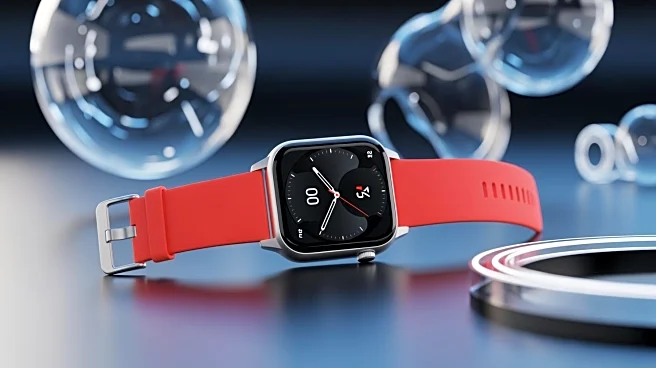What's Happening?
Fitbit has unveiled a significant redesign of its Android app, incorporating Google's Material 3 Expressive design language. This update includes a shorter bottom bar and a new syncing mechanism for Pixel Watch and Fitbit devices. The redesign features
fluid and natural motion transitions, enhancing user experience when navigating between stat pages and main tabs. Additionally, the app introduces an AI-powered personal health coach, accessible via a floating action button. The redesign aims to provide a more comprehensive and visually appealing interface, with thematic background layers for key stats and a sheet motif for feeds like Today, Fitness, and Sleep. The update is currently available as a public preview in the U.S. and is set to launch officially next year.
Why It's Important?
The redesign of the Fitbit app signifies Google's commitment to enhancing user experience through advanced design principles and AI integration. By adopting Material 3 Expressive, Fitbit aims to offer a more intuitive and engaging interface, potentially increasing user satisfaction and retention. The introduction of an AI-powered coach could revolutionize personal health management, providing users with tailored fitness guidance and insights. This development may strengthen Fitbit's position in the competitive wearable technology market, attracting new users and retaining existing ones. The focus on fluid motion and thematic design elements reflects a broader trend in app development towards creating seamless and visually appealing user experiences.
What's Next?
As the redesign rolls out, Fitbit users can expect further enhancements and features that leverage AI technology for personalized health coaching. The official launch next year will likely include additional updates and optimizations based on user feedback from the public preview. Stakeholders in the wearable tech industry may respond by accelerating their own app redesigns and AI integrations to remain competitive. Fitbit's approach could influence broader design trends in health and fitness apps, prompting developers to prioritize user-centric design and AI capabilities.
Beyond the Headlines
The integration of AI in Fitbit's app raises questions about data privacy and the ethical use of personal health information. As AI-powered features become more prevalent, companies must ensure robust data protection measures to maintain user trust. Additionally, the redesign reflects a cultural shift towards more personalized and interactive digital experiences, which could impact how users engage with technology in their daily lives. The emphasis on fluid motion and thematic design may set new standards for app aesthetics and functionality, influencing future developments in the tech industry.















